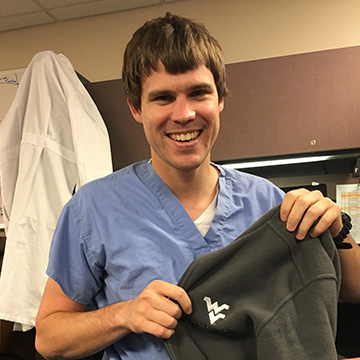Q&A about Urology for Applicants
Questions and answers about Urology Residency with Dr. Stanley Zaslau, Professor and Chairman.
If you were an applicant, why would you choose to train at West Virginia University?
The urology program at West Virginia University can be considered to be a 'Mighty Might.' We are one of two ACGME accredited urology residencies that services the state of West Virginia. When one considers both the population of West Virginia and the surrounding regions of Ohio, Kentucky, Virginia, Pennsylvania, and Maryland, our program is the resource for approximately 2.75 million people. Thus, the diversity and breadth of cases here is outstanding. This exposure to urologic disease coupled with an extensive reaching program makes this program, in our opinion "a jewel."
What are we looking for in a potential resident?
We are looking for motivated, hardworking and sincere individuals who want to be well trained urologists. While demonstration of academic success is important (USMLE scores and class rank), we are also particularly interested in training residents share the same passion for urology as we do.
What part of an application do we consider most important in ranking applicants?
The most important criterion to rank an applicant is how well they will fit into our program. While this is certainly hard to assess during the interview process, we encourage applicants interested in our program to spend a rotation with us. While a month elective is preferable, we would be happy to have applicants rotate for as little as one week with us as their schedule permits. In addition to getting to know our applicants personally, we pay close attention to the following, in order of importance:
(1) Letters of recommendation,
(2) Class rank,
(3) Clinical rotation performance,
(4) USMLE scores,
(5) CV and personal statement.
What advice do we have for medical students hoping to match in Urology?
Our best advice is to plan for your interest as early as possible in your medical school experience. For example, we encourage our first-year students to do a lab research project with us (which is a paid position). We encourage our second-year students to attend our conference and shadow us in clinic. We suggest that third-year students do a rotation with us and get involved with a research project. We encourage fourth-year students to do all of the above as fast as they can before the match day comes around.
